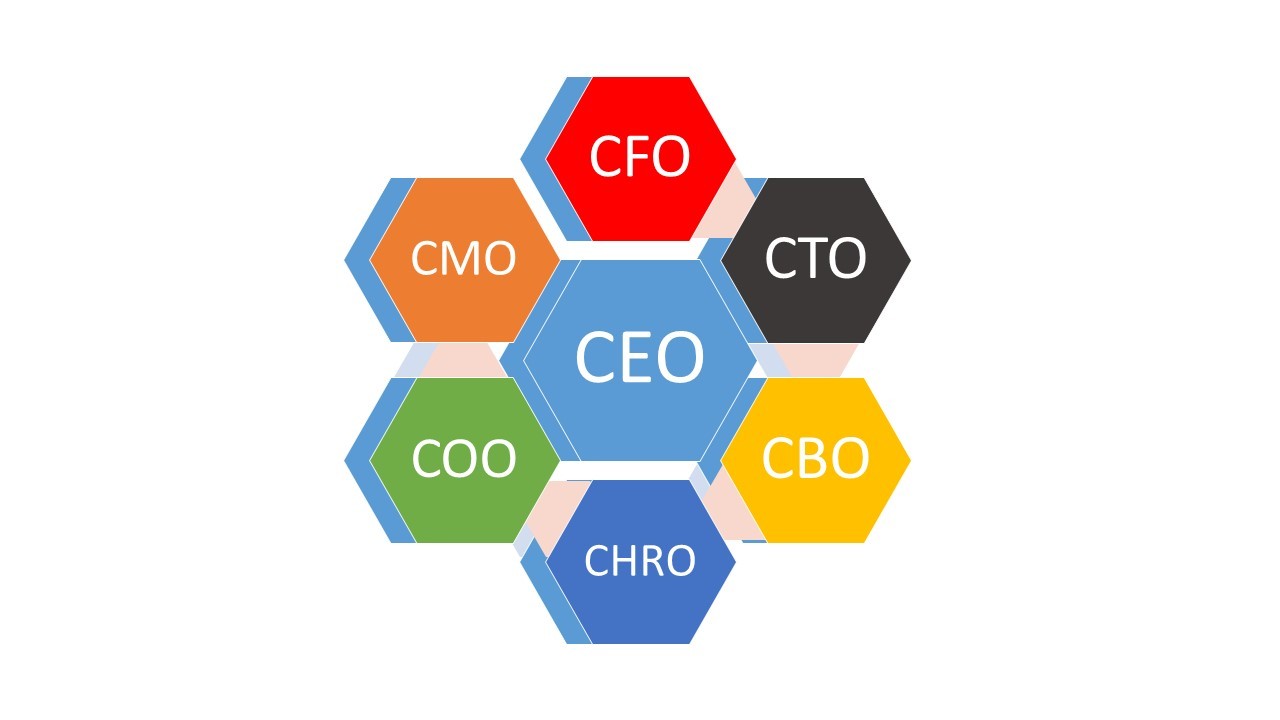Understanding CXOs: Meaning, Roles, and Responsibilities in Modern Organizations

In today's dynamic business landscape, organizations are increasingly recognizing the importance of customer-centric strategies to drive growth and maintain competitiveness. This shift in focus has led to the emergence of a new breed of executives known as CXOs, who are tasked with championing the customer experience across all facets of the organization. In this comprehensive guide, we delve into the meaning, roles, and responsibilities of CXOs, shedding light on their critical role in shaping the success of modern enterprises.
Understanding CXOs
The term "CXO" is an umbrella term used to refer to a variety of C-suite executives, each with a specific focus on driving customer-centric initiatives within an organization. While traditionally, C-suite positions were primarily occupied by roles such as Chief Executive Officer (CEO), Chief Financial Officer (CFO), and Chief Operating Officer (COO), the rise of customer-centricity has led to the creation of new CXO roles aimed at prioritizing the customer experience.
Roles and Responsibilities of CXOs
1. Chief Executive Officer (CEO)
The CEO is the highest-ranking executive in an organization and is responsible for setting the overall strategic direction and vision. While not exclusively a CXO role, modern CEOs are increasingly emphasizing the importance of customer-centricity in their leadership approach. CEOs play a pivotal role in fostering a customer-centric culture throughout the organization and ensuring that customer experience remains a top priority.
Responsibilities:
• Setting the strategic direction and vision of the organization.
• Championing a customer-centric culture.
• Providing leadership and guidance to other CXOs and senior executives.
• Ensuring alignment between business objectives and customer needs.
2. Chief Customer Officer (CCO)
The Chief Customer Officer, or Chief Experience Officer (CXO), is a senior executive responsible for overseeing all aspects of the customer experience. This includes understanding customer needs and preferences, developing strategies to enhance customer satisfaction, and driving customer loyalty and retention initiatives.
Responsibilities:
• Developing and implementing customer experience strategies.
• Collecting and analyzing customer feedback and data.
• Collaborating with other departments to ensure a seamless customer journey.
• Monitoring key performance indicators related to customer satisfaction and loyalty.
3. Chief Marketing Officer (CMO)
The Chief Marketing Officer is responsible for leading the organization's marketing efforts and promoting its products or services to customers. In today's customer-centric landscape, CMOs play a crucial role in understanding customer behavior, preferences, and market trends to develop targeted marketing campaigns that resonate with the target audience.
Responsibilities:
• Developing and implementing marketing strategies to attract and retain customers.
• Conducting market research and analysis to identify customer needs and trends.
• Collaborating with other CXOs to ensure a consistent customer experience across all touchpoints.
• Monitoring and measuring the effectiveness of marketing campaigns and initiatives.
4. Chief Sales Officer (CSO)
The Chief Sales Officer is responsible for leading the organization's sales team and driving revenue growth through customer acquisition and retention strategies. CSOs work closely with other CXOs to align sales objectives with overall business goals and ensure a seamless customer experience throughout the sales process.
Responsibilities:
• Developing and implementing sales strategies to meet revenue targets.
• Building and managing relationships with key customers and stakeholders.
• Providing leadership and guidance to the sales team.
• Collaborating with other departments to ensure a smooth transition from sales to service delivery.
5. Chief Technology Officer (CTO)
The Chief Technology Officer is responsible for overseeing the organization's technology strategy and ensuring that technological solutions align with customer needs and business objectives. In today's digital age, CTOs play a crucial role in driving innovation and leveraging technology to enhance the customer experience.
Responsibilities:
• Developing and implementing technology strategies to support business objectives.
• Evaluating and implementing new technologies that improve the customer experience.
• Ensuring the security and reliability of technological infrastructure.
• Collaborating with other CXOs to integrate technology solutions across the organization.
6. Chief Data Officer (CDO):
The Chief Data Officer is responsible for managing and leveraging data assets to drive business growth and enhance the customer experience. CDOs play a critical role in collecting, analyzing, and interpreting customer data to gain insights that inform decision-making and drive strategic initiatives.
Responsibilities:
• Developing and implementing data governance policies and procedures.
• Collecting and analyzing customer data to identify trends and opportunities.
• Collaborating with other departments to integrate data-driven insights into business processes.
• Ensuring compliance with data privacy regulations and standards.
7. Chief Experience Officer (CXO):
The Chief Experience Officer is a relatively new role in many organizations and is responsible for overseeing the end-to-end customer experience across all touchpoints. CXOs work closely with other CXOs and senior executives to ensure that every interaction with the organization is positive, seamless, and aligned with customer expectations.
Responsibilities:
• Developing and implementing strategies to enhance the overall customer experience.
• Identifying pain points and opportunities for improvement in the customer journey.
• Collaborating with other departments to implement customer-centric initiatives.
• Monitoring and measuring key performance indicators related to the customer experience.
CXOs play a critical role in driving customer-centricity and shaping the success of modern organizations. By championing the customer experience across all facets of the organization, CXOs can foster loyalty, drive growth, and differentiate their brands in today's competitive landscape. As customer expectations continue to evolve, the role of CXOs will become increasingly important in ensuring that organizations remain agile, responsive, and focused on delivering value to their customers.
